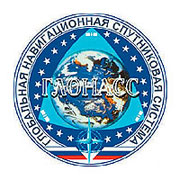If Russia wants open source then Russia needs glasnost


To strongman Vladimir Putin the word smacks of anarchy. He wants everyone in the country hearing one voice, following one lead and one policy.
But what glasnost really means is openness, transparency. These are the values of open source.
Taking his cue from the Yeltsin era, Putin may feel that glasnost just gives cover to wolves, oligarchs who consume the economy and waste it wallowing in their own luxury.
But this is really a separate issue.
Open source has tamed some of the most voracious capitalists in America, making them more dog-like, and put them under a restraint even government was powerless to create.
Right now western writers are obsessing over reports Russia wants to dump Windows in favor of its own version of Linux.
It sounds like North Korea's Red Star Linux, which is still buggy eight years after launch. Or China's Red Flag Linux, which it's trying to force on Internet cafes.
As with the North Korean version, China's Linux is said to still be buggy, and of course it is suspect among users because it might be bugged.
This brings up some of the problems with tyrants adopting Linux. Glasnost is a natural enemy. Turning open source into an enemy of freedom is always going to be political. And open source is not by its nature political, either.
This is illustrated by a story out of Moscow, of a teacher fired from a computer science school because he protested continuing use of Windows. Was Vladamir Sorokin a victim of "renegade elements" who haven't gotten the government's word on open source? Maybe, but nothing in the controversy seems to move Russia's software efforts forward, regardless of which OS it's installing.
The real story coming out of Russia right now has nothing to do with software. It's the roll-out of Glonass, the Soviet (sorry, Russian) satellite navigation system.
The system, first developed in the early 1990s, will soon be restored to service with new birds, and Russia wants to now levy a tariff of 25% on devices which support America's GPS system instead.
This argument is more up Russia's street, since it's pure industrial policy. Glonass is no more accurate than GPS, and in the world market it's probably going nowhere, especially since Europe's coming Galileo system will be more accurate.
But that's the story the Russian press is covering, not its penguin plans, and in the long run I suspect that's the one that will prove most important.
Penguins and tyranny don't mix.